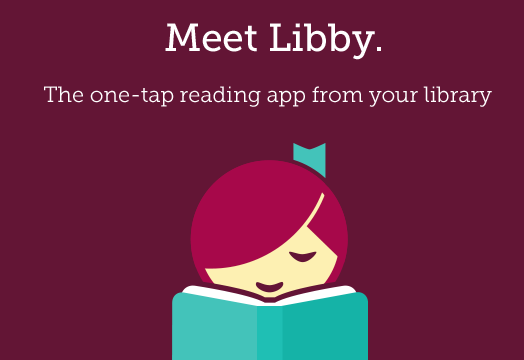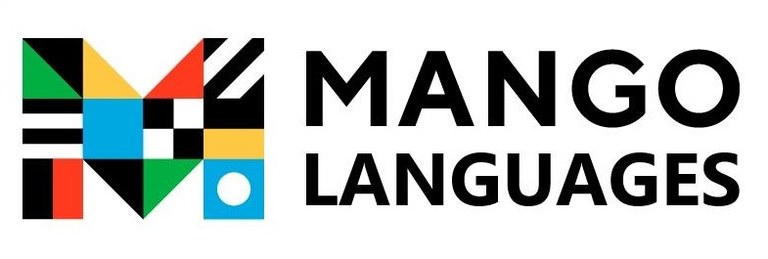Internet Policy
Acceptable Use of the Internet and Library Public Computers
Introduction to Policy
Public access to the Internet is available to all users of the Reading Community Library (RCL) on patron access computers. The Library makes the Internet available to the public as an informational, educational, and recreational resource in support of its role as this community’s information and lifelong learning center, just as it has in the provision of books, magazines, music CD's, talking books, and other media. However, there may be times when the user may not be able to access a given site on the Internet or the Internet connection is disrupted or slow due to circumstances beyond the control of the Library.
Users must realize and be cautioned that, because security in an electronic environment such as the Internet cannot be guaranteed, all transactions, files, and communication are vulnerable to unauthorized access and use and, therefore, should be considered public.
Our Internet Use Policy affirms the safeguarding of First Amendment rights, intellectual freedom, and equity of access, confidentiality of information about users and their use of all library resources including electronic and individual responsibility. Libraries facilitate the exercise of the First Amendment by providing access to, identifying, retrieving, organizing, providing instruction in the use of, and preserving recorded expression regardless of format or technology. The Library affirms the following principles and user rights as delineated in the American Library Association’s Library Bill of Rights in Cyberspace.
- Information retrieved or utilized electronically should be considered constitutionally protected unless determined otherwise by a court with appropriate jurisdiction.
- Internet users are cautioned that ideas, points of view, and images can be found on the Internet which may be controversial, offensive, sexually explicit, divergent and/or inflammatory. This does not mean or imply that the Library endorses or sanctions the content or point of view of any of the information or commentary which may be found on the internet. Library patrons use the Internet at their own risk.
- The Library assumes no responsibility for any damages, direct or indirect, arising from its connections to the Internet. The Library makes no guarantee, either expressed or implied, with respect to the quality or content of the information available on the Internet. Not all the information available via the Internet is accurate, current, or complete. Users are encouraged to be good information consumers by evaluating the validity of information accessed via the Internet.
- Library computers on which the public can access the Internet are located in public areas which must be shared by library users of all ages, backgrounds, and sensibilities. Individuals are asked to consider this when accessing potentially controversial information and images. The Library reserves the right to ask individuals to discontinue the display of information and images which cause a disruption.
Section 1: Acceptable Usage of Computers
A. Use the Internet workstation in a responsible manner, respecting the rights of others, and
taking care with use of the equipment. The user may not change the Internet settings or
damage/change the setup of either the hardware or software of Library computers. Personal
software may not be loaded or used on library computers. Attempts to circumvent or breach
workstation, network, or host security within the Library or at other Internet sites, or to
otherwise compromise the operation of or access to these systems or resources will result in
denial of Internet privileges.
B. Respect intellectual property rights by making only authorized copies of copyrighted, licensed
or otherwise controlled software or data residing on the Internet and the World Wide Web. It
is the user's responsibility to be aware of the display of any copyrighted notices and to obey
copyright laws of the United States.
C. Respect the privacy of others by not misrepresenting oneself as another user; by not
attempting to modify or gain access to files, passwords, or data belonging to others; and by
not seeking disallowed access to any computer system via the Internet.
D. Acknowledge that Internet access is available on a first-come, first-served basis, however
RCL policy stipulates a 60 minute time limit per day to all users and a 30 minute time limit per
use if there are other users waiting. However, the staff will use their discretion to attempt to
allow patrons to use their daily allotment of time at one sitting so as to not inconvenience
them.
E. Not use electronic work stations for any illegal or criminal purpose, including activities
prohibited under any applicable federal, Michigan, or local laws. If it comes to the attention of
the Reading Community Library that the Internet is being used for illegal or criminal activity of
any kind, the Library will report to and cooperate with law enforcement officials in any
manner authorized by state or federal statute.
F. Not have more than two persons at any Internet work station at one time.
G. Not deliberately propagate computer viruses.
H. Not distribute unsolicited advertising or propaganda.
I. Refrain from the display of obscene matter or sexually explicit matter on screens and/or
printers. Such display will be construed as sexual harassment, and in the case of a minor a
violation of Michigan law and will result in revoking Internet privileges. The Reading
Community Library is committed to providing an environment free from sexual harassment.
J. Realize the Library Internet is intended for information gathering only.
K. Realize the Reading Community Library is not responsible for damage to any user's disk or
computer or any loss of data, damage, or liability that may occur from use of Library
computers.
L. Know the Reading Community Library will not tolerate the use of library equipment to access,
transmit, or print obscene or sexually explicit materials that are harmful to minors. Users are
reminded that they are in a public environment and are asked not to display on screens
and/or print materials that may be objectionable.
Section 2: Internet User Responsibilities
All users of the Internet are expected to use this library resource in a responsible and courteous manner, consistent with the purposes for which it is provided, and to follow all Internet-related rules, regulations, and procedures established for its use including, but not limited to, those of the Library. All of these include:
A. Recognizing that the Internet, like all of the Library’s information sources, must be shared and
used in a manner which respects the rights of others and refrains from activity that prevents
others from using it.
B. Using the Library’s Internet resources for educational, informational, and recreational
purposes only.
C. Refraining from displaying, viewing, or downloading graphics or content that is obscene.
D. Refraining from illegal or unethical use of the Internet.
E. Refraining from using the Library’s Internet resources to conduct a business or commercial
enterprise, or engage in commercial activity such as the distribution of advertising. The work
stations may not be used for personal profit or commercial activities including the sale or
purchase of goods and services, or fundraising. Interactive services that have an educational
purpose (e.g. taking an exam online) are allowed.
F. Refraining from the transmission of threatening, harassing, or abusive language and images.
Section 3: Staff Assistance
Staff will assist library users in getting started on the Internet. However, the Library cannot guarantee that Internet-trained staff will be available to assist users at all times the Library is open. Regrettably, staff is not able to offer extensive explanations about the internet or personal computer user or provide in-depth training. Time permitting, staff will try to answer specific questions about the Internet and offer suggestions for effective searching. Staff can also provide information about Internet books and manuals. Reading Community Library reserves the right to discipline Internet users who violate the stated acceptable usage policy and /or responsibilities listed above per sanctions listed in section I. Internet access will be denied to anyone who does not comply with this policy.
Section 4: Sanctions & Compliance with Library Policy and Guidelines
Library users observed violating the provisions of RCL’s Internet Users Acceptable Usage Policy and/or Internet Use Responsibilities will be asked to cease the violation with a verbal warning. If the patron does not comply with the request, computer privileges will be revoked for the day. The Director or the Director’s designee may further limit or revoke the patron’s computer privileges if infractions continue. Such limitation or revocation shall be in writing specifying the nature of the violation. However, depending upon the severity of the infraction the Director or Director’s Designee may take further action including but not limited to a complete ban from the Library and all Library services. Regardless, subsequent violations shall result in additional suspensions of computer use of increasing length. Illegal activity involving the Library’s Internet resources will be subject to prosecution by the appropriate authorities.
Section 5: PA212 Requirements
A. Under Michigan Public Act 212, minors age 17 and under must use a terminal “restricted from
receiving obscene matter or sexually explicit matter that is harmful to minors” unless “accompanied
by their parent/guardian. Adults, persons aged 18 and over, are free to select for themselves
filtered or unfiltered access.
B. RCL provides content filtering as an option for Internet users. Filtering software can assist in
blocking some illegal or inappropriate websites. However, the technology is not able to block all
sites that patrons and/or parents/guardians may deem inappropriate or unacceptable. In addition
using the filtered options may block sites that patrons and/or parents/guardians would deem
appropriate and useful.
C. In line with PA212 requirements for filtering software the Reading Community Library uses a
content filter that blocks the following categories or items:
⁃ Adult Themes
-
⁃ Adware
⁃ Alcohol
⁃ Classifieds
⁃ Dating
⁃ Drugs
⁃ Forums/Message boards
⁃ Gambling
⁃ Hate/Discrimination
⁃ Lingerie/Bikini
⁃ Nudity
⁃ Parked Domains
⁃ Phishing
⁃ Pornography
⁃ Proxy/Anonymizer
⁃ Sexuality
⁃ Social networking
⁃ Tasteless
⁃ Visual search engines
D. Parents or guardians are responsible for the Internet information selected and/or accessed by
their children. Children who use the internet unsupervised may be exposed to inappropriate or
disturbing images and information. RCL strongly encourages parents/guardians to supervise their
children’s Internet activities, regardless of whether the content is filtered or unfiltered.
Section 6: Enforcing PA212
Internet access is available on filtered and non-filtered computers upon request. Filtered
computers are identified. Those computers that are not filtered are still located in highly visible areas and are monitored by the library staff. This method of restricting access is in compliance with PA212. Violators of this policy will be asked to discontinue an objectionable display as referred to in PA212. If individuals refuse to discontinue the display, they will be asked to leave. If they do not leave, the police will be called. Continued violations will result in the loss of Internet privileges and/or banning from the library.




